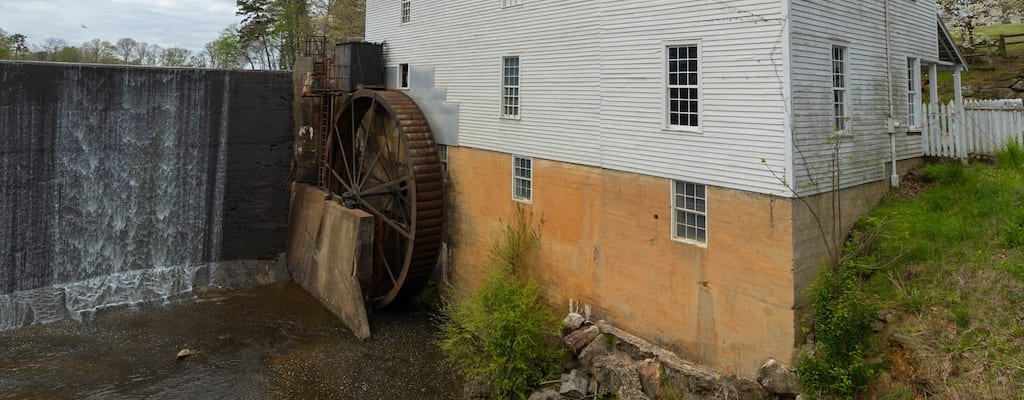trouble at mill: Idiom Meaning and Origin
What does ‘trouble at mill’ mean?
"Trouble at mill" is a British idiom that originated from the textile industry. It means there are problems or difficulties occurring, usually within a workplace or organization. The phrase is often used humorously or sarcastically to describe a situation that has become chaotic or problematic.

Idiom Explorer
When there is "trouble in paradise," it means that there are problems or conflicts in a situation or relationship that was once perfect or ideal.
An idiom meaning to disrupt or interfere with a process, plan, or situation, usually causing it to go off track or fail.
The idiom "through the mill" means to go through a difficult or challenging experience, often resulting in personal growth or resilience.
The idiom "teething troubles" is used to describe the initial difficulties or problems that arise during the early stages of a project or endeavor.
The idiom "teething trouble" refers to initial difficulties or problems that arise when starting something new or implementing a new system, similar to the discomfort and challenges experienced by a baby when their teeth are growing.
An idiom that refers to the difficulties or setbacks experienced at the initial stages of a new project, process, or endeavor.
The idiom "rumor mill" refers to the circulation of unverified information or gossip within a group or community.
The idiom "rough trot" refers to a difficult or challenging period of time or situation. It conveys the idea of facing hardships or experiencing a series of problems.
The idiom *rough patch* refers to a difficult or challenging period of time in someone's life or a situation. It implies that things are not going well and there are obstacles or problems to overcome.
Unanticipated Chaos
The idiom "trouble at mill" is a phrase that originated in Northern England and is linked to the textile industry. It is a colloquial expression used to describe a situation or issue that has gone awry or become chaotic. The idiom gained popularity through its usage in the British comedy sketch show "Monty Python's Flying Circus," where it was humorously exaggerated and further embedded in popular culture.
Historically, the phrase "trouble at mill" has its roots in the 19th century, coinciding with the rise of the industrial revolution and the boom of the textile industry in England. Mills were central to the production of textiles. They served as large-scale factories where raw materials like cotton were processed and transformed into fabrics. The mills, particularly those in Lancashire and Yorkshire, faced numerous challenges, including mechanical breakdowns, strike actions, and economic downturns.
Economic hardship and labor disputes were common occurrences in the mills, leading to significant disturbances in the production process. These challenges often resulted in delays, shortages, and financial losses for the mill owners. Workers, too, bore the brunt of these troubles, experiencing job insecurity and reduced wages. The harsh working conditions and constant struggles became synonymous with the textile mills, giving rise to the idiom "trouble at mill."
While the exact origin of the idiom is unclear, it is believed to have its foundations in the everyday language of the workers in these mills. The phrase reflects the common occurrence of disturbances, difficulties, or problems that frequently plagued the mill operations. Workers would recount the issues they faced by saying, "We're going through the mill", underscoring the challenges they encountered on a regular basis. This figurative usage depicted the arduous nature of mill life, emphasizing the toll it took on both the workers and the mill itself.
The idiom gained wider recognition through its appearance in "Monty Python's Flying Circus," a British television show known for its eccentric humor and wordplay. In one of the sketches, a disgruntled mill worker played by John Cleese repeatedly complains about the various troubles at his mill, comically exaggerating the issues and creating a memorable comedic scene. This portrayal of going through the mill further popularized the use of the idiom and cemented its association with chaos and disorder.
In contemporary usage, the idiom "trouble at mill" still retains its original meaning of describing a situation gone wrong. It is often colloquially employed in British English, primarily in the North of England, but has also seeped into wider English usage. When someone says, "We're going through the mill," they mean that they are experiencing a series of difficulties or challenges. This figurative usage encapsulates the metaphorical journey of navigating through a tumultuous situation, akin to traversing the challenging operations of a troubled mill.
The phrase "trouble at mill" encapsulates the trials and tribulations faced by the textile industry during the industrial revolution and has endured as a metaphorical expression to describe any problematic situation. Its usage in popular culture, notably in "Monty Python's Flying Circus," has contributed to its recognition and use beyond its original geographic boundaries. Though its frequency of usage may have waned, the idiom remains a testament to the colorful language that emerges from specific industries and cultural contexts. Its very existence invites us to explore the connection between language, history, and human experiences, leaving open the possibility of further investigation and interpretation.
Example usage
Examples of how the idiom *trouble at mill* can be used in a sentence:
- When the factory's machinery broke down, there was trouble at mill as production came to a halt.
- There's been trouble at mill between the management and the employees, leading to frequent strikes.
- The recent financial difficulties have caused trouble at mill for many small businesses, forcing some to close down.
More "Difficulty" idioms



